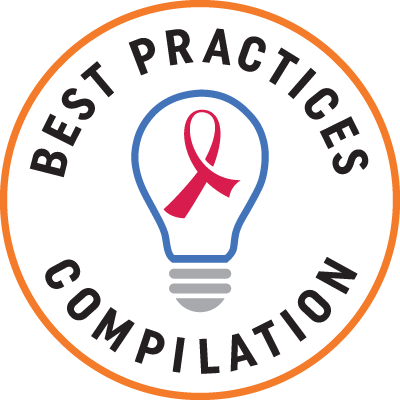Rapid ART
On
Rapid ART is the administration of antiretroviral therapy as early as possible after an HIV diagnosis and, ideally, at the same clinic visit as the HIV diagnosis. Rapid ART is the standard of HIV treatment. Clinic processes to adopt rapid ART include development of protocols, staff training, development of teams that can facilitate delivery of rapid ART, and client education.
Best Practices
- Rapid ART Dissemination Assistance Provider
- Center for Innovation and Engagement
- Best Practices Compilation
- Center for Innovation and Engagement
- Best Practices Compilation
Technical Assistance
TAP-in supports the 47 EHE jurisdictions funded by HRSA to strengthen their EHE work plans, promote cross-jurisdictional learning, and ensure jurisdictions have access to the resources they need. Project period: 2020-2025.
- The central hub of the AETC Program, the clinical training arm of the RWHAP, through HIV curricula, technical support to regional AETCs on practice transformation and best practices, and housing of all AETC-developed tools for HIV clinical staff. Project period: 2019-2024.
- The AETC Program offers clinician education and tailored capacity-building assistance. Project period: 2019-2024.
 Initiative documenting best practice strategies and interventions that have been shown to improve HIV outcomes in a "real world" setting and can be replicated by other programs. Project period: 2021-2024.
Initiative documenting best practice strategies and interventions that have been shown to improve HIV outcomes in a "real world" setting and can be replicated by other programs. Project period: 2021-2024.- SPNS initiative on implementation and evaluation of interventions that accelerate initiation of antiretroviral therapy (Rapid Start). Project period: 2020-2024.